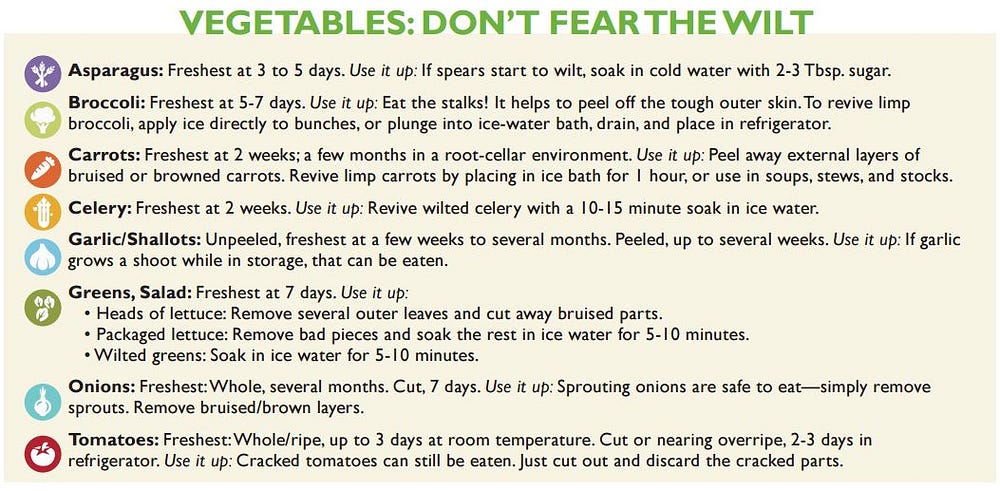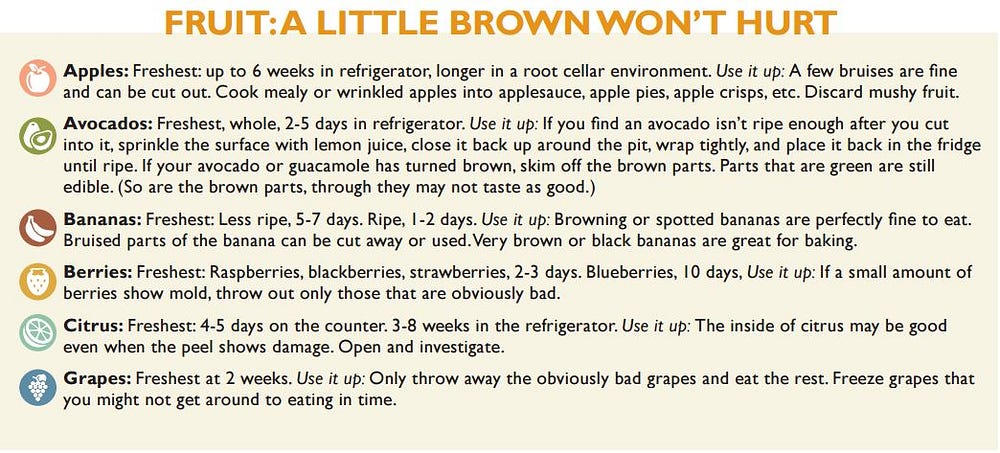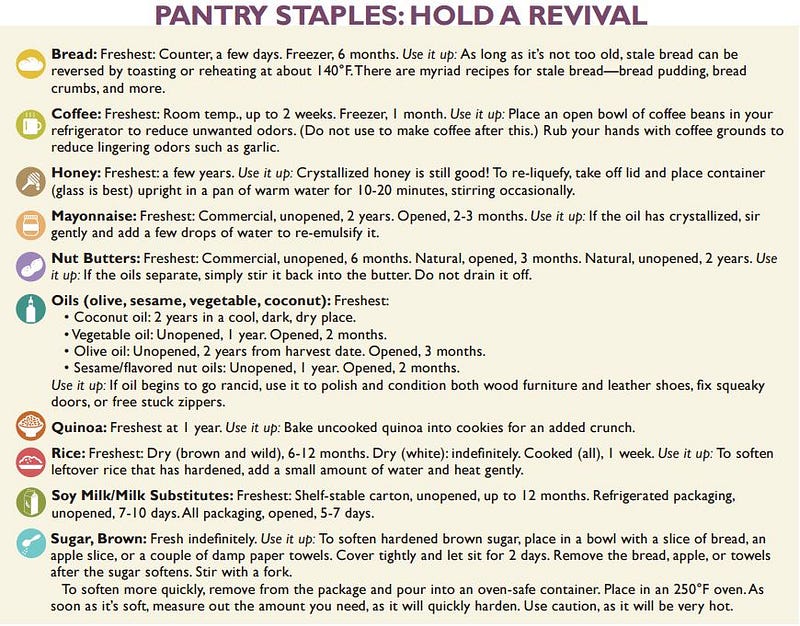
Those “expiration dates” printed on your food? In most cases, they’re not really expiration dates. The stamped “use by,” “sell by,” and “best by” dates on food most often do not indicate safety*.
Manufacturers establish and print the dates, in general, to indicate when an item is at peak freshness and optimal taste. In other words, they have nothing to do with your health.
But the fact that most people and businesses interpret the stamped dates as when the foods start to spoil means a lot of food is prematurely thrown out. In his book American Wasteland (Da Capo Lifelong Books, 2011), Jonathan Bloom reports that grocers toss an estimated $2,300 per day of food that is “out of date”. Most stamped dates on food are not federally regulated but are regulated “inconsistently and intermittently” at the state level, says Dana Gunders, a staff scientist at the Natural Resources Defense Council and author of WasteFree Kitchen Handbook (see the note at the bottom of this page). “Many foods will stay good for days or even weeks after the date on the package.”
The only federally regulated exception is baby formula, and the dates on it indicate when nutrients start to decline, not that it’ll make your child sick.
Bottom line: A food past its stamped date may not necessarily be bad, so don’t automatically toss it out. Gunders says that a lot of waste could be spared if people better understood food date labels: “Taste the product, smell the product. If it seems fine to you, it’s probably fine to eat,” she says. Try the tips below to tell when your staple foods are safe to eat and can be revived — and find more foods in Gunders’ book.



Adapted with permission from Waste-Free Kitchen Handbook by Dana Gunders (Chronicle Books, 2016).
- A NOTE OF CAUTION: Gunders advises being careful with products that experts tell pregnant women to avoid for safety, such as deli meats and unpasteurized dairy products. “The reason they tell pregnant women to avoid those is because of a pathogen called listeria. Listeria is exceptional in the world of bacteria because it can survive, and actually multiply, under refrigerated conditions, where others can’t.” While listeria is most likely to be found on those two foods, the Dept. of Health and Human services also calls out hot dogs, soft cheeses, refrigerated smoked seafood, and raw sprouts as having potential for contamination. Cooking the item kills the bacteria.







